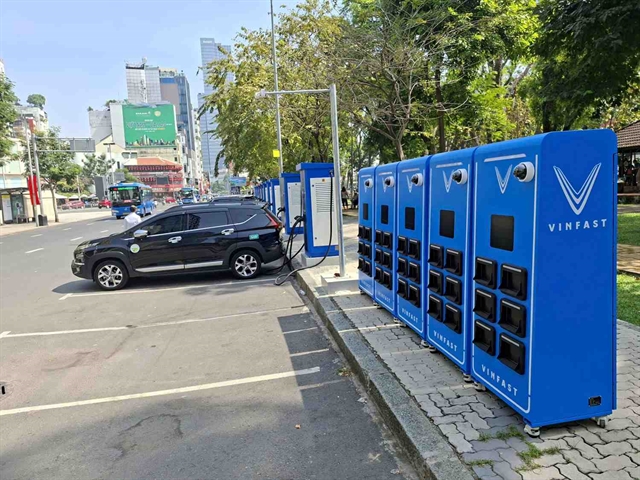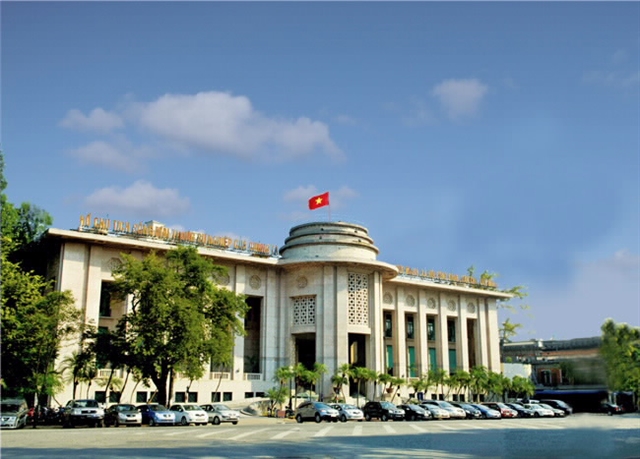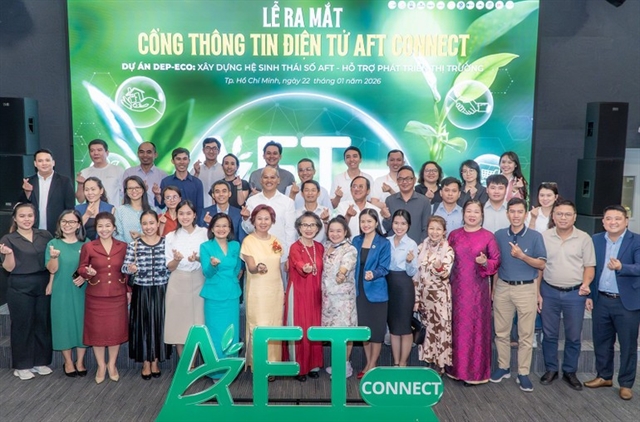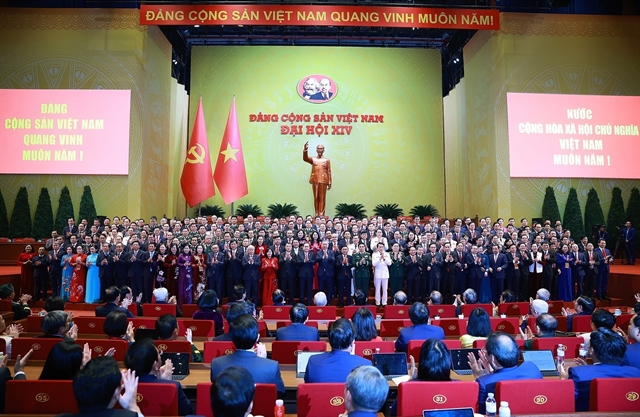 Environment
Environment

 |
| Air pollution in Hà Nội. — VNA/VNS Photo Hoàng Hiếu |
HÀ NỘI — As one of the two major economic and political centres of the country, Hà Nội attracts many people to live and work there, but those large numbers along with the rapid pace of rapid urbanisation, have led to overload and serious environmental pollution.
This is a difficult problem for Hà Nội Party Committee and competent authorities.
In the future, when the amended Capital Law is passed, Hà Nội will be able to implement many specific solutions to protect the city's environment in a sustainable way.
Big challenge
Hà Nội currently has a total population of nearly nine million people, with a density 8.2 times higher than the whole country.
Although the city has actively implemented environmental protection solutions, the increasing pressure of rapid urbanisation has negatively impacted the environment.
People's awareness of environmental protection is not high and many still throw away household waste and construction waste without any controls, causing pollution and loss of urban aesthetics.
Part of the cause of the problem is the sheer volume of waste created, while collection and treatment is not thorough enough.
On average, Hà Nội produces about 7,000 tonnes of household waste every day, but only collects and processes 80-85 per cent.
The remaining waste is dumped indiscriminately in canals, ditches, ponds, across vacant spaces or along the roadside.
Another reason is domestic wastewater. The city has total daily wastewater volume of about 320,000cu.m, of which one third is industrial wastewater. Most of it is not treated but is dumped directly into rivers and lakes, leaving some rivers in Hà Nội effectively 'dead' due to heavy pollution, seriously affecting people's quality of life.
Another urgent problem for the city is air pollution. Hà Nội is consistently ranked among the top cities with the highest pollution levels in the world.
Recent monitoring results show that the number of days with poor and bad air quality index (AQI) accounts for more than 30 per cent of the total number of monitoring days in the year.
Deputy Director of the Hà Nội Environmental Protection Sub-department under the Department of Natural Resources and Environment Lưu Thị Thanh Chi said that there were many reasons for the city's poor air quality.
The capital city has 17 industrial parks, about 1,300 craft villages, more than seven million motorbikes and more than 600,000 cars.
Every day, the city consumes about 80 million kWh of electricity and millions of litres of petrol, along with spontaneous agricultural products and waste burning.
Climate change, unsynchronised urban development planning and lack of environmental protection solutions are major difficulties for urban development.
Experts also warn that land pollution in Hà Nội is increasing because of waste from industrial activities. Construction, landfills, residual chemical toxins... they all pollute the land.
In urban areas, only about 15 per cent of solid waste landfills ensure hygiene standards.
Prevention
 |
| Waste flytipped in Yên Hòa Ward, Cầu Giấy District in Hà Nội. — VNA/VNS Photo Minh Nghĩa |
Hà Nội has recently issued many edicts offering solutions to improve environmental quality.
Thanks to promoting inspection, examination and handling of violations, specifically identifying environmental pollution areas; and clearly assigning responsibilities to relevant units, environmental protection has initially achieved positive results.
Deputy Director Chi said that the city's daily collection rate of domestic waste and medical waste is nearly 100 per cent.
The city completed and put into operation 35 automatic air monitoring stations.
Hà Nội eliminated 96 per cent of traditional coal stoves and hundreds of handmade brick kilns.
It has invested more than VNĐ10 trillion (US$392.2 million) to build domestic wastewater collection systems and wastewater treatment plants.
Deputy Chairman of the Hà Nội People's Committee Nguyễn Trọng Đông asked districts to strengthen management, inspection, supervision and prevention of environmental pollution.
Competent agencies must resolutely handle environmental law violations, especially in craft villages and industrial parks.
They should ensure all wastewater treatment systems serve the craft villages.
Alongside this they need to apply new technology to treat water pollution in lakes and ponds, develop drainage and deploy projects to improve water in Nhuệ and Đáy rivers.
They are also responsible for researching and adjusting planning of wastewater collection and treatment network.
In parallel with these solutions, departments and localities will promote education and raise awareness and responsibility for environmental protection across all areas of society.
They will actively coordinate with associations, unions, the Fatherland Front at all levels to create synergy to preserve the capital's environment.
Policies
Chi said that combined with the policies on environmental protection of the Government, the amended Law on Capital would add new regulations and put an emphasis on how to handle waste to avoid environmental pollution.
The law also proposes to attract investment in projects to classify and treat domestic solid waste, polluted rivers, streams, lakes, ponds and lagoons with advanced and modern technology.
To reduce air pollution, the law determines that there must be coordination between Hà Nội and other localities in the region. It defines preferential policies in planting trees, afforestation, waste and wastewater treatment and environmental services.
Hà Nội will relocate industrial production facilities that cause prolonged environmental pollution and medical facilities with high risk of infection out of the inner city.
According to the Hà Nội Air Quality Management Plan to 2030, the capital city aims to minimise air pollution, ensuring good and average air quality according to the AQI, of at least 75 per cent of days in the year.
Chairman of the Hà Nội People's Committee Trần Sỹ Thanh has sent an official dispatch requesting heads of departments, districts and towns to strengthen inspection and handle violations in collecting and transporting waste.
The Hà Nội Technical Centre for Natural Resources and Environment will set up plans for the Nam Sơn and Xuân Sơn waste treatment complexes, ensuring continuous reception and treatment of waste.
It will not accept vehicles transporting waste to the wrong area or transporting the wrong type of waste. — VNS




